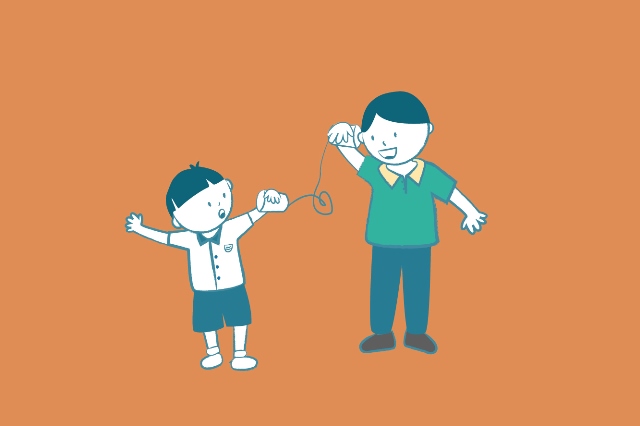Talking With Your Tween: Going Beyond “I Don’t Know”
30 Dec 2015

Has stress driven your kid to stop talking and hole up in his room? Here are 5 great conversation starters to break the ice.
“How was your day?”
“Fine.”
“How did your test go?”
“OK.”
“Anything new happening at school?”
“Nope.”
It can be tough to persuade your child to open up about their school life. But getting answers to your questions, whether simple or a bit more in-depth, doesn’t have to be like pulling teeth. All it takes is some patience and an approach that keeps pressure to a minimum. Above all, don’t badger your child as soon as he gets home from school – everyone needs some time to wind down. Start a conversation at the dinner table or when you’re doing something together.
If your child isn’t immediately forthcoming, don’t worry. Silence isn’t a bad thing. Given time to reflect, your child might just give you all the information you sought and more. Give it a try by using one or more of these conversation starters:
What was the coolest thing that happened today?
This is one way to find out what excites your child and why. But what if your child replies with a curt “Nothing”? Tell him he doesn’t need to answer straightaway; he can think about it and share later.
Which of your classes today was fun?
It could be Math, English or perhaps to your surprise, a subject that he doesn’t discuss much! Find out why the class was a breeze for him – did it involve revising work he’s mastered or was it a topic that captured his interest?
What if your child says “PE”? It’s still a valid answer! Maybe the lesson revealed a previously untapped interest in a particular sport or a hidden talent.
And what if your child tells you that he hated everything? Probe gently. Ask him why those classes were unbearable – was it the first lesson on a new topic or further study on a topic that he hasn’t fully grasped yet? Try to think of ways to offer additional support.
Name three fears your personal genie can chase away.
Your kid may know what you’re up to, but hey, it’s worth appearing a little silly in a bid to find out more about your child’s fears. He might realise that you’re offering him a safe and casual way to share his worries. There could be a bully in school you didn’t know about, or he might be coping with a fear of speaking up in class. His answer may help unravel the mystery behind the moodiness you’ve been observing.
What’s the best thing about being a student?
Start with the positive – the highs of being in school. Find out how he feels about being part of the most senior batch of kids in the school or interesting topics he has learned. Perhaps you’ll hear something totally unexpected.
You could follow it up with the lows – what’s the worst thing about being a student? If PSLE stress and endless tuition are his complaints, take the opportunity to have a chat about them. You’ve opened the door to this conversation, so listen closely and don’t be judgmental.
How would you introduce yourself to your idol?
What is your kid willing to share? Is there something he’s proud of? This is a good way to find out if there are certain memories he cherishes and learn about the people closest to his heart. Perhaps he has developed a new interest? Again, this is another question that might turn up delightful answers.





.jpg)